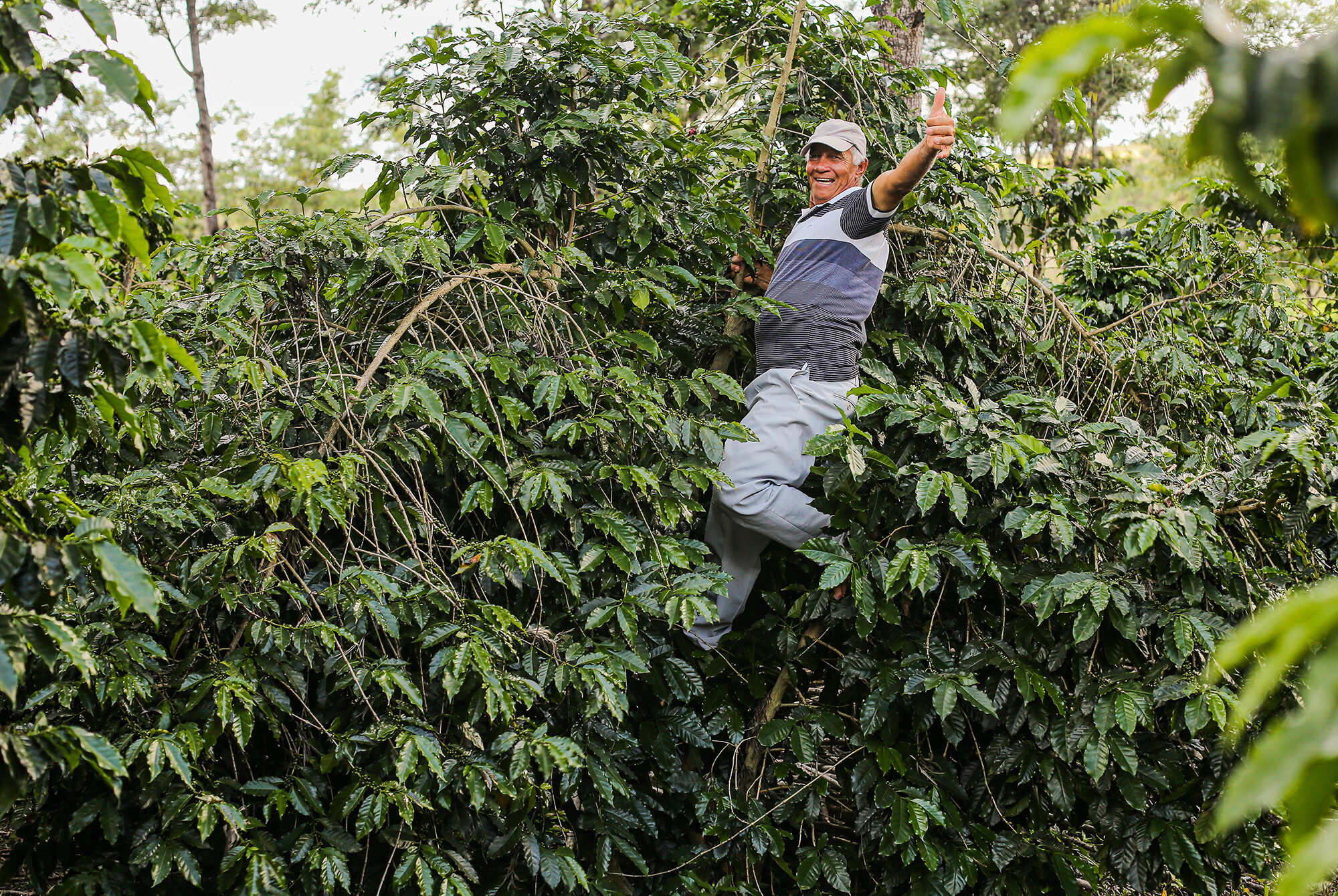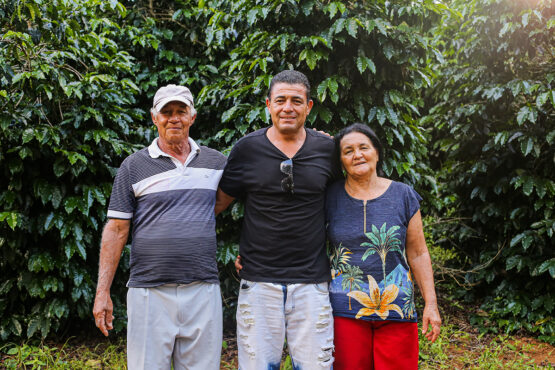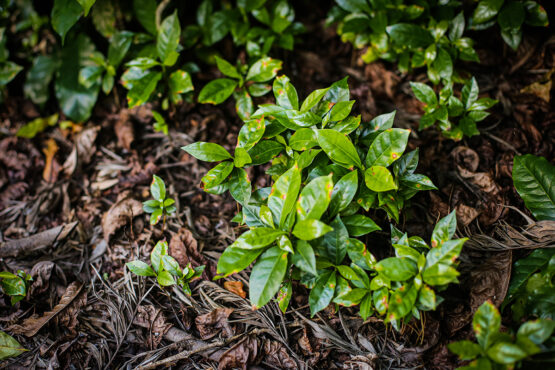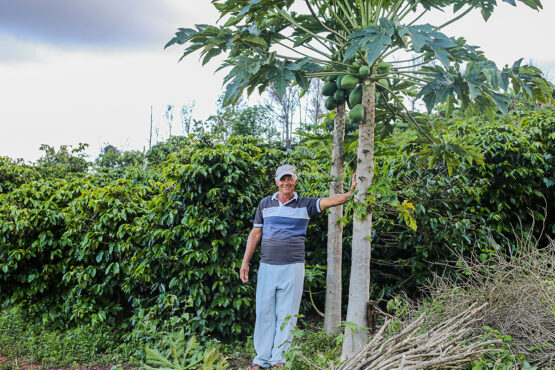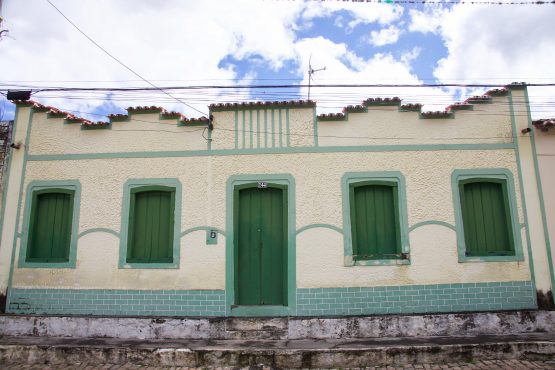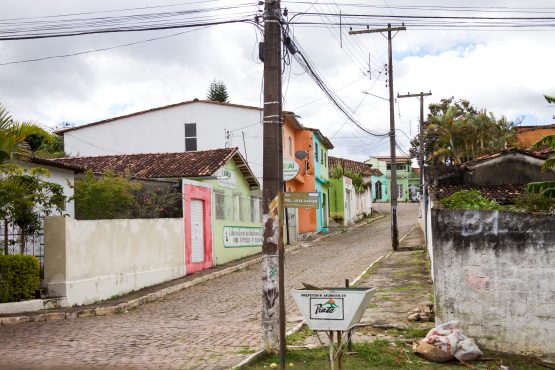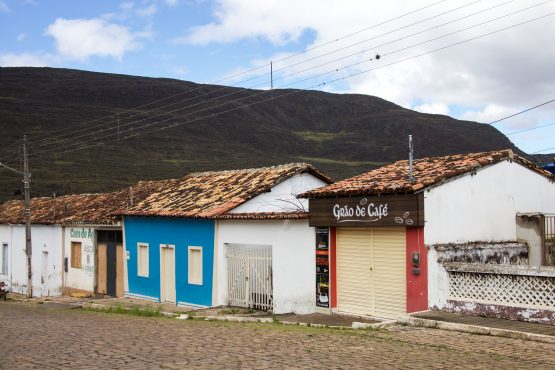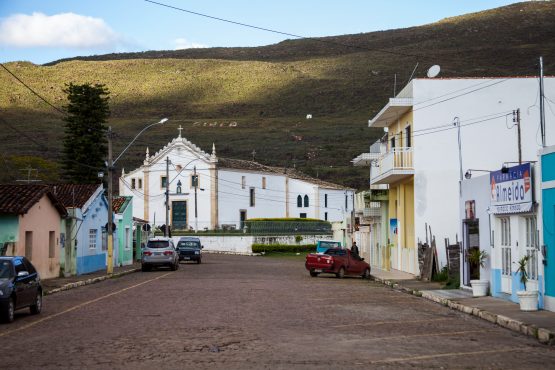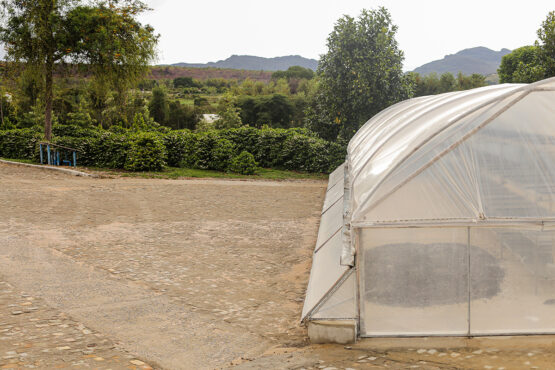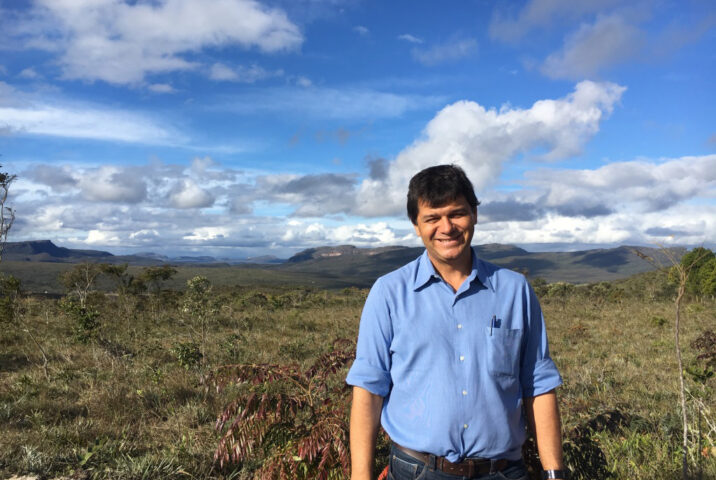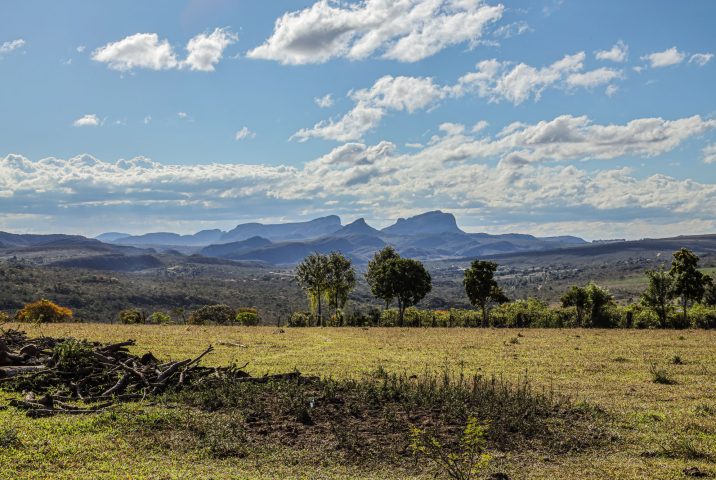Sitio Tanque
Rich and creamy, with great depth and sweetness. Sarsaparilla, plum and black cherry, with hazelnut nougat and black tea on the finish.
This coffee was produced by Aleci Souza and his family at their farm, Sitio Tanque. The 6 hectare estate is located at an elevation of 1,300m above sea level near the town of Piatã, a privileged coffee growing region in Bahia’s Chapada Diamantina region. Chapada Diamantina translates to “Diamond Plateau” in Portuguese, and for 100 years this area was mined for the gemstones embedded in its cliffs. Today, the region is famous for its specialty coffee.
Aleci has been working in coffee for over 30 years and has always been driven by the principle that high-quality requires patience and hard work. When he first inherited Sitio Tanque from his father, the ageing plantation was in considerable need of improvements. Aleci recognised the farm sat in one of Chapada’s most privileged regions, with mineral-rich, clay soil that is excellent at retaining moisture – a feature that, when harnessed appropriately, can have huge benefits for coffee-growers. To maximise the farm’s capacity, Aleci made the decision to renovate its irrigation system entirely. This move, risky as it may have seemed, has paid off over time, and has ensured his team can grow coffee more efficiently and responsibly.
At Sitio Tanque, Aleci and his family grow a number of varieties, including Catuaí, Catucaí and Mundo Novo. These were chosen due to their high productivity and cup quality, resistance to pest and disease and, importantly, their suitability to Brazil’s climate. Aleci keeps a close eye on the trees and plots that don’t produce quality or quantity and replaces them with others of the same variety. This way, he is able to maintain uniformity across the plantation, while increasing yields and quality. This particular lot is a blend of Mundo Novo and Catuaí.
ABOUT PIATA
Piatã is a unique and distinct coffee-growing region. The coffees produced here tend to be very floral, sweet and complex, and quite different from those that we source elsewhere in Brazil. There are two main factors behind this: Coffee grows at elevations of up to 1,400 meters above sea level, which is very high for Brazil. Additionally, temperatures in Piatã range from about 2°C to 18°C in winter, some of the lowest in the country. Combined, the high elevation and cool climate are key in slowing down the maturation of the coffee cherries, leading to an increased concentration of sugars in the bean. The result is a cup profile that is bright, transparent, and distinctive. Piatã’s relative closeness to the Equator line ensures coffee trees can experience such drastic conditions without being affected by frost, unlike traditional coffee-growing regions in the country.
Coffees from Piatã are considered some of the best in Brazil. The town was first internationally recognised for its high quality in 2009, when five of the top 10 spots in Brazil’s Cup of Excellence came from Piatã. The region’s dominance in the competition has continued every year since, particularly in 2016 when an astounding 19 of the 24 winning lots came from Piatã! These coffees are extremely limited, as production here is relatively low, given the small scale of the farms in this part of Brazil. MCM has been sourcing coffee from this region since 2012, thanks to the support of longtime partner and coffee mentor Silvio Leite. Head here to learn more about Silvio and the incredible work he’s done in Brazil.
HOW THIS COFFEE WAS PROCESSED
Aleci applies his belief in patience and hard work perfectly when processing his coffee. At Sitio Tanque, cherries were selectively handpicked mostly by local women (called “panhadeiras de cafe”) who are extremely disciplined and ensure only the very best and ripest cherries are selected. These cherries were then sorted by weight in water tanks, and floaters were removed. This coffee was then processed using the pulped natural process.
Once sorted, the coffee was pulped and spread in layers to dry in greenhouses with their mucilage still attached — turned several times a day. At this stage, the coffee is practically left in the shade, as this slows down and extends the drying considerably. This step is key in improving and ‘saving’ the fructose and all positive attributes found in the remaining mucilage, as these contribute to a higher quality in the final cup.
Aleci was extremely meticulous during the drying stage, and every precaution was taken to ensure the beans were protected from dew and any other form of condensation. Workers were also instructed to be extra careful and mindful of their work clothes and boots when handling the beans, to avoid imparting any outside aromas on to the coffee. Finally, the beans were separated into numbered lots, and later stored and rested in parchment in a purpose-built warehouse prior to export.
